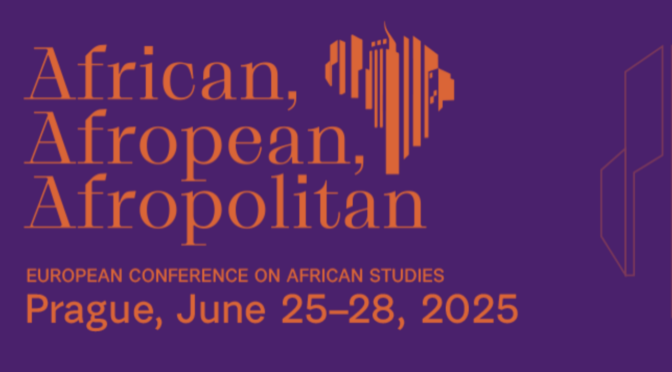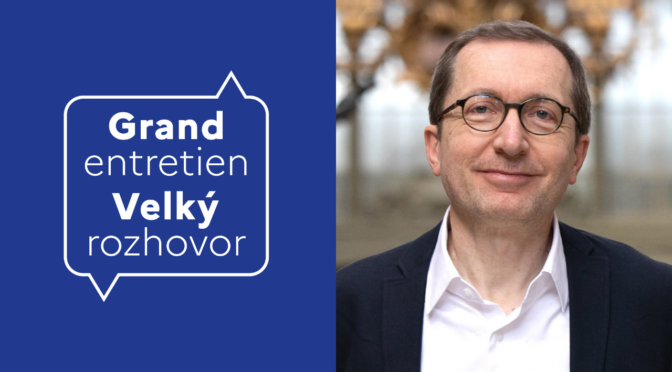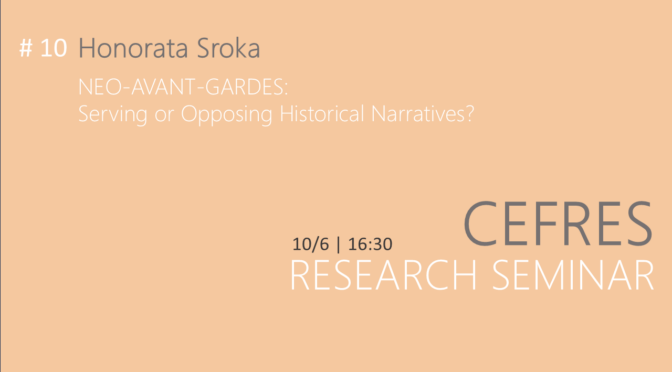
When: June 25-28, 2025
Where: Prague
Organizers: Czech Association for African Studies & European African Studies Association
AEGIS organises the European Conference on African Studies (ECAS) every second year, in a different European city, convened by one or more AEGIS members. It has become the largest global African Studies gathering, growing exponentially every year and attracting scholars from across Europe, Africa and the world.
CEFRES is a proud partner of this international conference which is is for the first time in its history located in one of the post-communist Visegrad countries – in the Czech Republic, known as the heart of Europe.
The 20th anniversary of ECAS will give us a great opportunity to look retrospectively at African studies in Europe, and more generally over the past two decades, while also providing new insights into the future development in the field. We will do our best to design a challenging programme of keynote speakers, plenary and roundtable sessions, film screenings, book displays focusing on African studies, and cultural and artistic events.
See the full program of the conference here.

When: June 25-28, 2025
Where: Prague
Organizers: Czech Association for African Studies & European African Studies Association
AEGIS organises the European Conference on African Studies (ECAS) every second year, in a different European city, convened by one or more AEGIS members. It has become the largest global African Studies gathering, growing exponentially every year and attracting scholars from across Europe, Africa and the world.
CEFRES is a proud partner of this international conference which is is for the first time in its history located in one of the post-communist Visegrad countries – in the Czech Republic, known as the heart of Europe.
The 20th anniversary of ECAS will give us a great opportunity to look retrospectively at African studies in Europe, and more generally over the past two decades, while also providing new insights into the future development in the field. We will do our best to design a challenging programme of keynote speakers, plenary and roundtable sessions, film screenings, book displays focusing on African studies, and cultural and artistic events.
See the full program of the conference here.

The next edition of CEFRES Review of Books will take place on Tuesday, June 24th, at 3:00 pm at CEFRES, Na Florenci 3, Prague 1
This informal meeting gathers CEFRES team, the library readers, and professionals from libraries and publishing. The aim of our Review of Books is to make better known the publishing landscape in humanities and social sciences. Each book is presented in French and in no more than 10 minutes, so to stress its originality and stakes.
The review will be followed by our traditionnal Tree Party.
So far, the following presentations are announced:
- MAILÄNDER, Elissa: Amour, mariage, sexualité : une histoire intime du nazisme (1930-1950). Paris Éditions du Seuil 2021, by Anabela Zigova
- NEVEUX, Olivier: Contre le théâtre politique. Paris La Fabrique éditions 2019, by Vera Guseynova
- SAPIRO, Gisèle: Qu’est-ce qu’un auteur mondial ? : Le champ littéraire transnational. [Paris] EHESS Gallimard Seuil 2024, by Hélène Martinelli and Mateusz Chmurski

To Live in a Library of Five Dimensions
As part of the ‘Grands entretiens’ series, this event is organised by CEFRES and its Platform partner, Charles University, in collaboration with the French Institute in Prague.
Date: June 11, 2025, 18 h
Location: French Institute in Prague, Štěpánská 35, Praha 1
Language: in French with simultaneous translation into Czech
Moderation: Záviš Šuman, Faculty of Arts, Charles University
Where does the hostility towards literature come from, and what are the roots of its growing devaluation? How can we enrich our readings by taking a decentralised look at the texts? To what extent can a perspective from afar shed new light on our understanding of the Greek tragedies? And with what far-reaching arguments has Pope Francis put an end to a long history of scathing indictments of literary texts?
Continue reading Grand Entretien with William Marx →

10th session of CEFRES in-house seminar
Through the presentation of works in progress, CEFRES’s Seminar aims at raising and discussing issues about methods, approaches or concepts, in a multidisciplinary spirit, allowing everyone to confront her or his own perspectives with the research presented.
Location: CEFRES Library and online (to get the link, write to cefres[@]cefres.cz)
Date: Tuesday, June 10, 2025 at 4:30 pm
Language: English
Speaker: Honorata Sroka (CEFRES / Charles University)
Chair: Hélène Martinelli (CEFRES / École Normale Supérieure de Lyon)
Text to be read: Peter Bürger (1974). Theory of the Avant-Garde. Translation Michael Shaw. Manchester: Manchester University Press.
Abstract
The presentation will take the form of very preliminary remarks related to my post-doctoral research, which I have been conducting for 7 months at the French Research Centre for Humanities and Social Sciences. My project develops the same line of research as my doctoral thesis, however, approaches the issue in a broader way. Specifically, using selected examples of neo-avant-gardes in Central and Eastern Europe, I hope to show how and why artists decided to create subversive forms of historiography and what kind of experimental strategies can be found in archives. Employing the methodology so-called “cultural history of the avant-gardes”, I will reflect on vanguard institutions and practices oriented towards a self-historiography. What I dare to claim one can essentially call a discussion on Peter Bürger’s pivotal book Theory of the Avant-Garde (1974). He was the one who argued that the avant-gardes stood against institutions. In contrast to his assumption, my research aims to display how neo-avant-gardes in Central and Eastern Europe developed rather than destroyed art institutions, as well as subversive forms of historiography, and why these two were intertwined.
Please find the complete program of 2024–2025 seminar here.

The expert seminar is organized by the Embassy of the Republic of Poland in Prague, the Embassy of the Federal Republic of Germany in Prague, and the French Research Center in Humanities and Social Sciences (CEFRES), in cooperation with the Embassy of the French Republic in Prague.
Date: June 10, 2025
Location: Embassy of the Republic of Poland, Valdštejnská 8, Prague 1
Language : English
PROGRAM
Continue reading Europe at the Crossroads: Energy Security Challenges →





